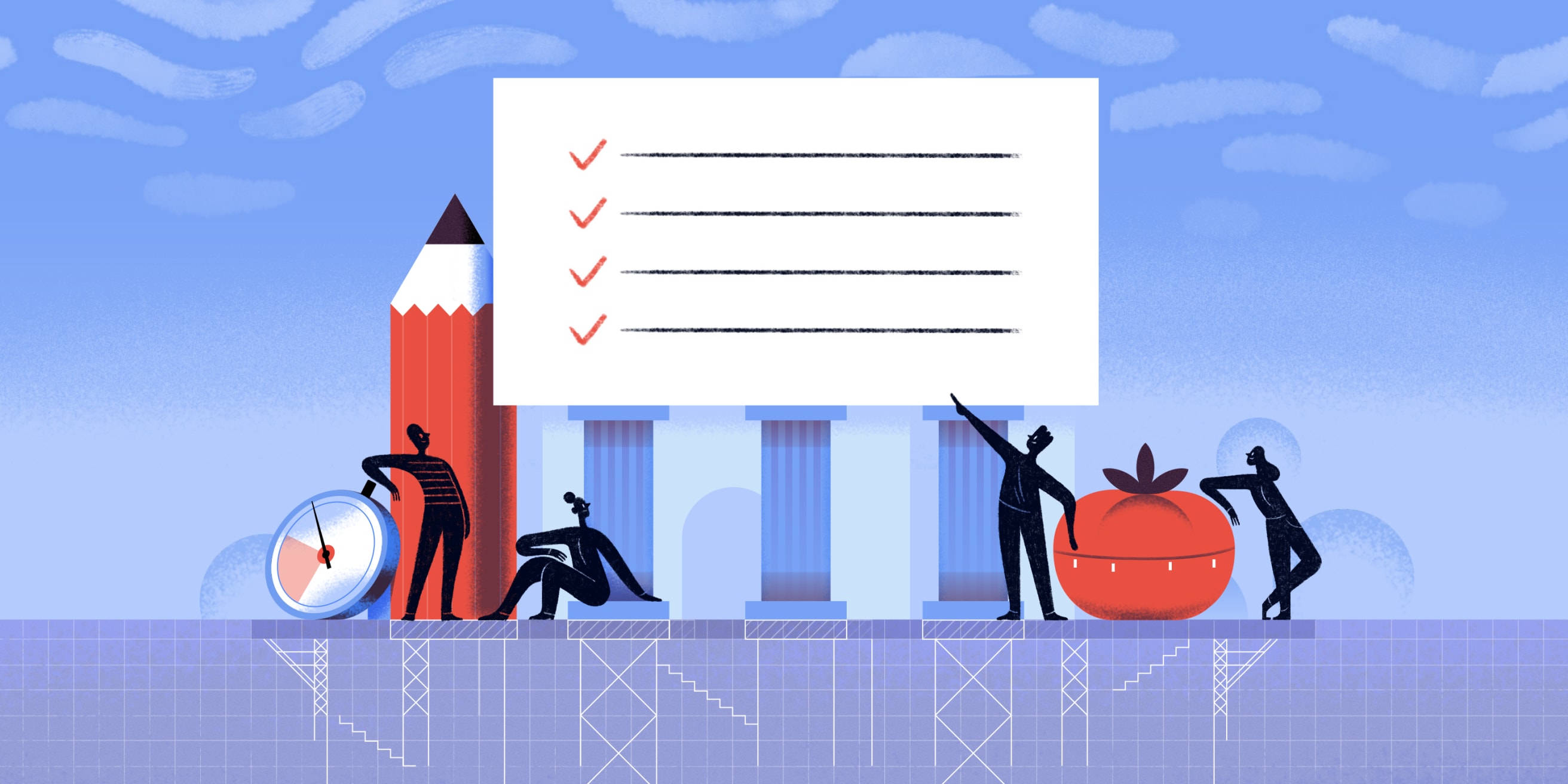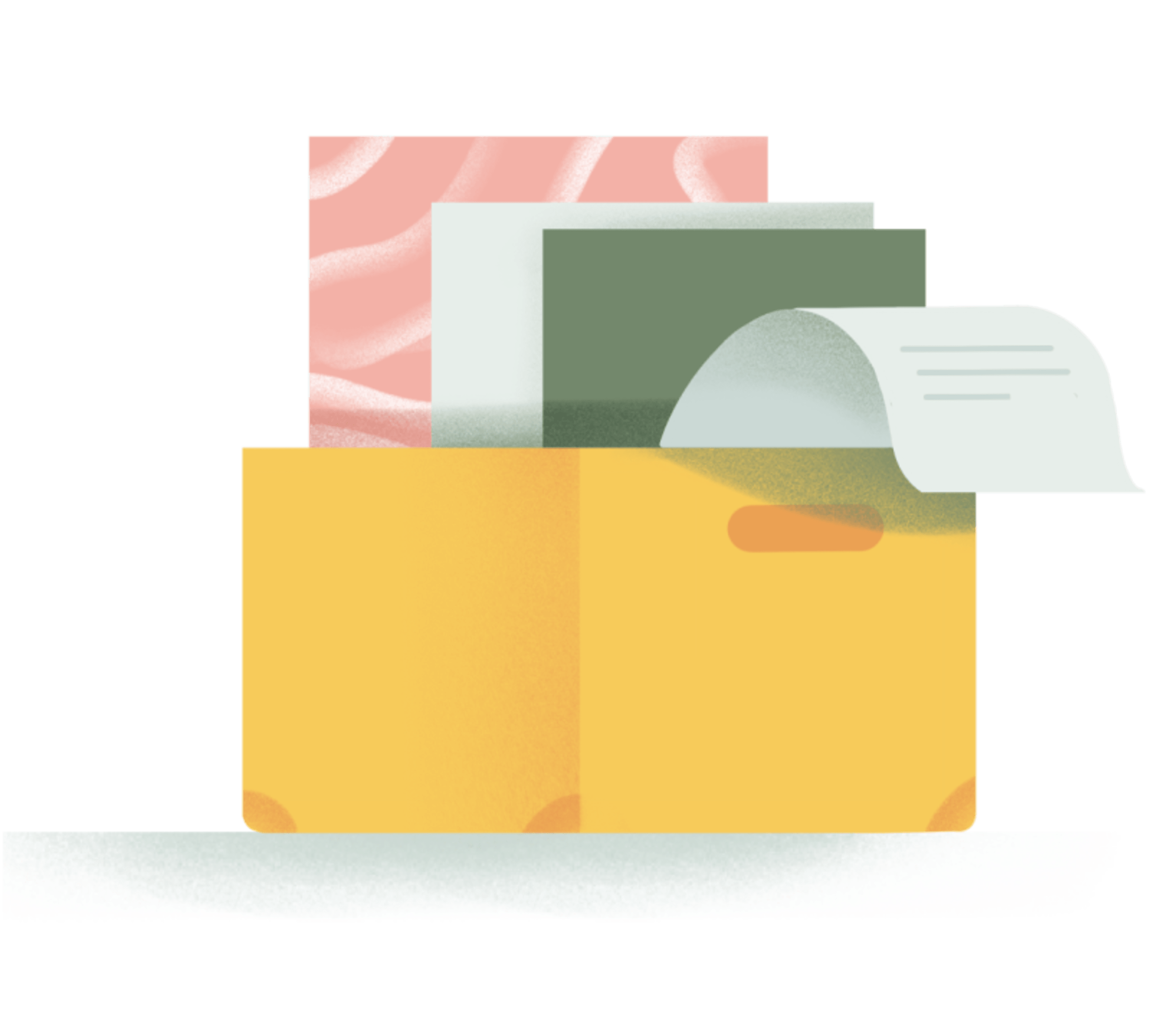When our Editor pitched me on writing a piece narrowing down productivity advice essentials, I was excited. Inspired by a NYT piece doing the same with financial advice, it would be a chance to discover secrets from productivity experts on time management and focus.
The goal was simple:
- Reach out to cool people who get a seemingly superhuman amount of stuff done
- Ask them the following: “Can you condense your best productivity advice on a single cue card?”
- Collect productivity gold for our readers
...and for myself.
Working for a company that builds a productivity app and writes extensively about getting things done, I've come across it all: Eat right, sleep more, take breaks...we've heard it all before.
I was excited to hear new techniques that were underpinned by innovative breakthroughs in health and behavioral science. Surely, the people I’d be getting in touch with - authors, experts, professors - had advice that went beyond the basics. They knew productivity secrets that us lay folks just don't.
It turns out I was exactly right...just not in the way that I thought.
I reached out expecting cutting-edge productivity hacks. Instead, I got a masterclass on productivity fundamentals.
Here are the essentials that will actually move the needle on your productivity, straight from the experts:
- Productivity is simplicity
- Helping others will propel you forward
- Prioritize the work that excites you
- Productivity takes planning
- Balance is central to productivity
- Productivity requires focus
- Productivity is choosing important work
- Personal productivity requires personal knowledge
- Modify your work to suit you
Adam Grant's Cue Card

Productivity Street Cred
- Top Rated Saul P. Steinberg Professor of Management and Professor of Psychology at the Wharton School of University of Pennsylvania
- Author of three New York Times bestselling books: Originals, Option B, Give and Take
- Host of WorkLife, a TED original podcast on discovering the answers to better work

- Productivity is simplicity - True productivity isn’t about fine-tuning your to-do list setup, picking the right email service or over-managing your calendar. True productivity is putting the right things on your to-list, exclusively answering emails that matter, and only taking meetings that will propel you forwards. It’s less about “how” and more about “what”. While the former largely represents distraction (“What’s the latest method? The newest tool? The best advice?”), it’s attention to the latter (“What do I want? How can I provide value?”) that drives forward momentum. When you’re focused on unimportant objectives, you feel painfully stuck. It’s like trudging along on a treadmill; sure, you’re running, but you’re not actually getting anywhere. On the contrary, when you’ve had a deeply productive day, you’ll know it.
- Helping others will propel you forward - Our pursuit of personal progress is just that...personal. That doesn’t mean it needs to be individualistic. Through his research in the field of organization psychology, Adam has found that givers, those who are "other-focused, paying more attention to what people need from them", "dominate the top of the success ladder". The benefits of helping others also include improved emotional regulation and higher levels of happiness. Productivity shouldn’t only be the pursuit of self-improvement, but also a mission to improve the lives and the work of people we encounter.
- Prioritize the work that excites you - There will always be tasks you dread or meetings you don’t want to attend. Minimize these as much as possible: say “no”, delegate, and automate. This leaves you to make room on your calendar for discussions that exhilarate you and space on your to-do list for activities that don’t feel like work. When what you spend your time on is congruent with your interests and values, progress feels conveniently close.
How do you actually put it into practice?
- Issue yourself a “productivity ban” for a week: no purchasing productivity books, no new productivity app downloads, no late-night browsing on productivity blogs. Instead, focus your attention on everything you need to do and how you can ensure it’s in line with where you want to go.
- Reach out to someone people at work and ask how you can use your skills to make their life easier this week.
- Free yourself of one obligation that’s been filling you with dread. Cancel that meeting, pull out of that speaking opportunity, get a refund on that weekend long course. Replace it with one item you’ll truly look forward to.
Laura Vanderkam's Productivity Cue Card
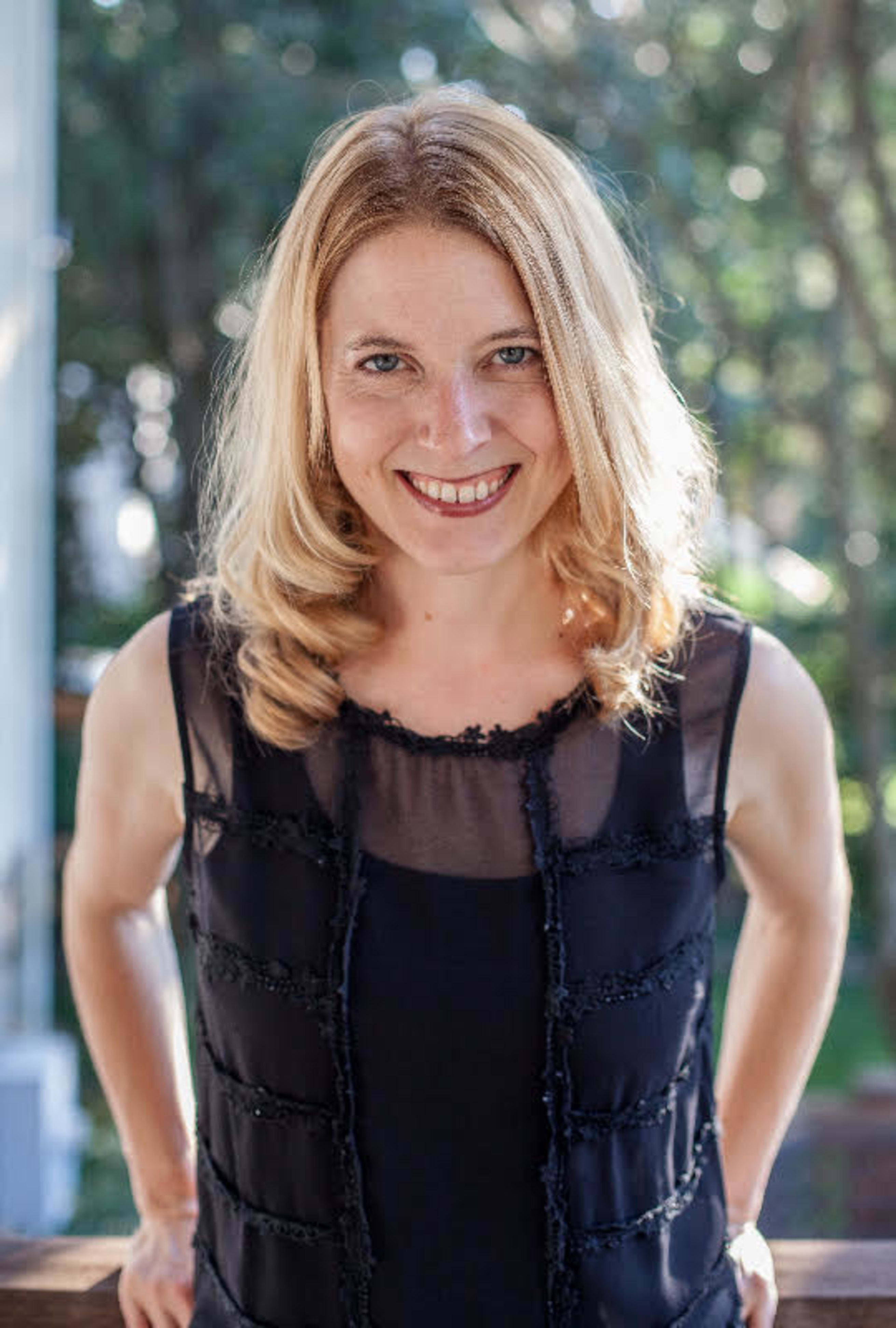
Productivity Street Cred
- Laura Vanderkam is the author of several time management and productivity books, including Off the Clock, I Know How She Does It, What the Most Successful People Do Before Breakfast, and 168 Hours
- She is the co-host, with Sarah Hart-Unger, of the podcast Best of Both Worlds where they discuss balancing both family and your career.
- Her TED Talk titled “How to gain control of your free time” has garnered over 3.2 million views
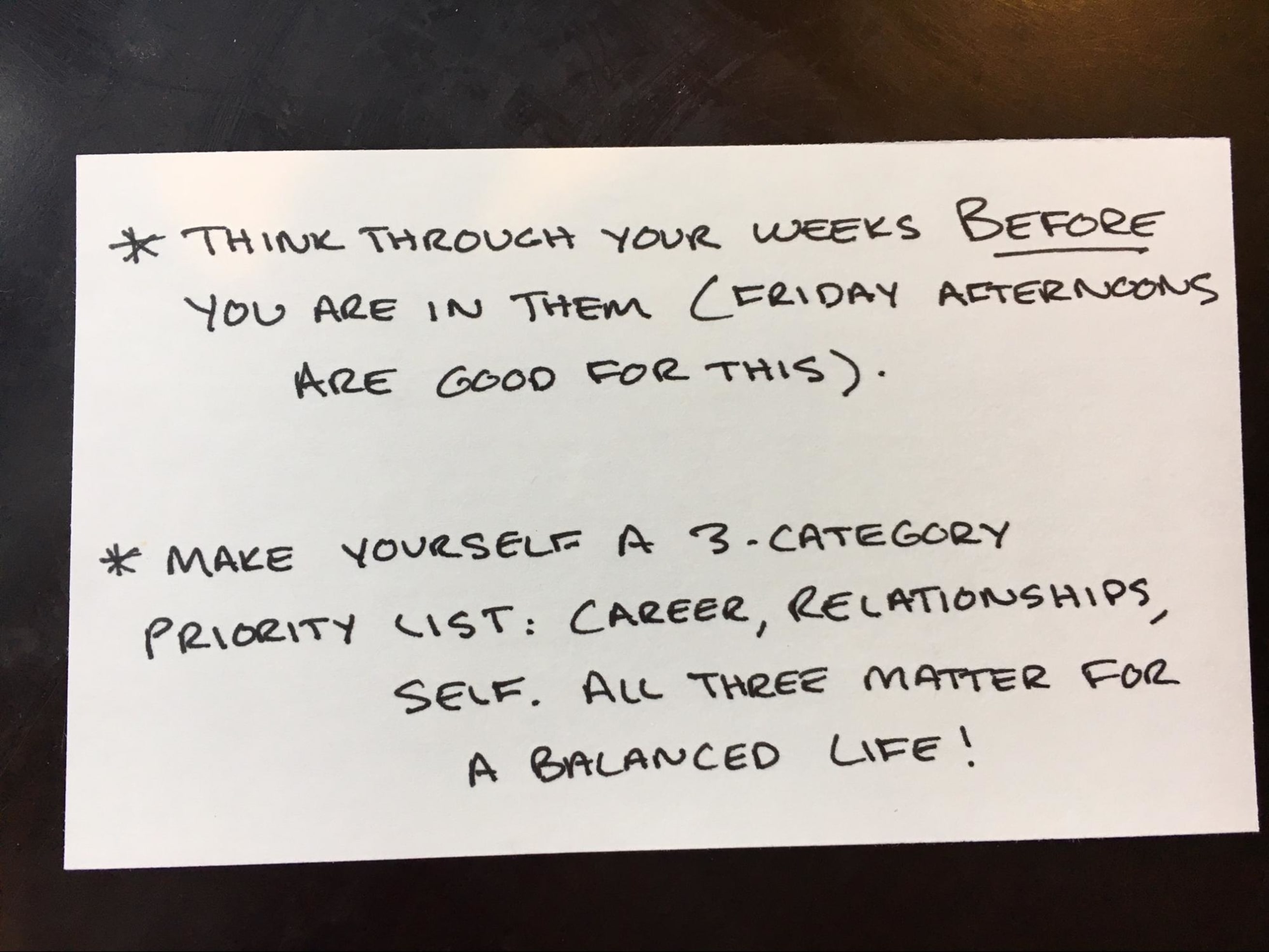
- Productivity takes planning - Approaching what we need to do with intention makes productivity feel like second nature. Vanderkam encourages us to look at our weeks as 168-hour blocks and suggests that "well-planned blocks of 168 hours are big enough to accommodate full-time work, intense involvement with your family, rejuvenating leisure time, adequate sleep, and everything else that actually matters.” Rather than wondering what we need to do next, hour-to-hour or minute-to-minute, planning ahead allows us to save time on indecision and helps us execute on everything we want to get done with greater precision.
- Balance is central to productivity - Focusing all the hours in the day squarely on your career is a fast-track to burnout. Instead, tend to all the important areas in your life. Be ambitious when it comes to your career, but equally so in nurturing the important relationships in your life and practicing balance in all areas of our life. Neglecting self-care can be a powerful driver in a lack of productivity and a diminished ability to focus.
How do you actually put it into practice?
- Schedule a 1-2 hour block in your calendar each week to plan for the week ahead.
- Check to see if your to-do list or calendar reflects a well-rounded approach to life. Ask yourself this question: “Does everything I have to do strike a balance between doing my best work, spending time with the people I care about, and taking care of my emotional and physical well-being?”
Chris Bailey's Cue Card
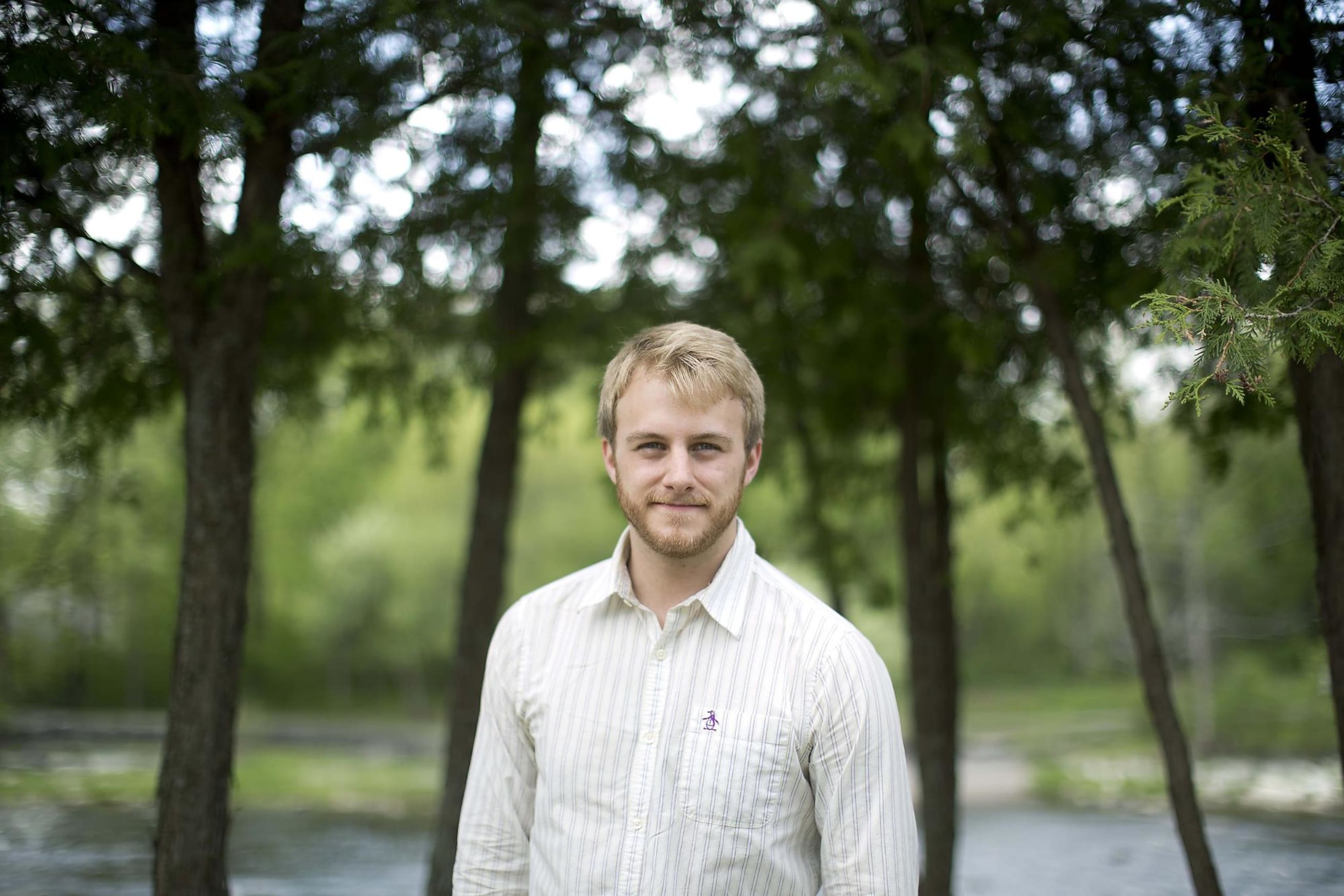
Productivity Street Cred
- Chris Bailey is the author of two productivity books, The Productivity Project and Hyperfocus: How to Be More Productive in a World of Distraction
- In a project entitled "A Year of Productivity", Chris read and wrote tirelessly (over 200,000 words) about productivity
- He’s conducted dozens of productivity experiments including meditating for 35 hours in a week and drinking only water for a month
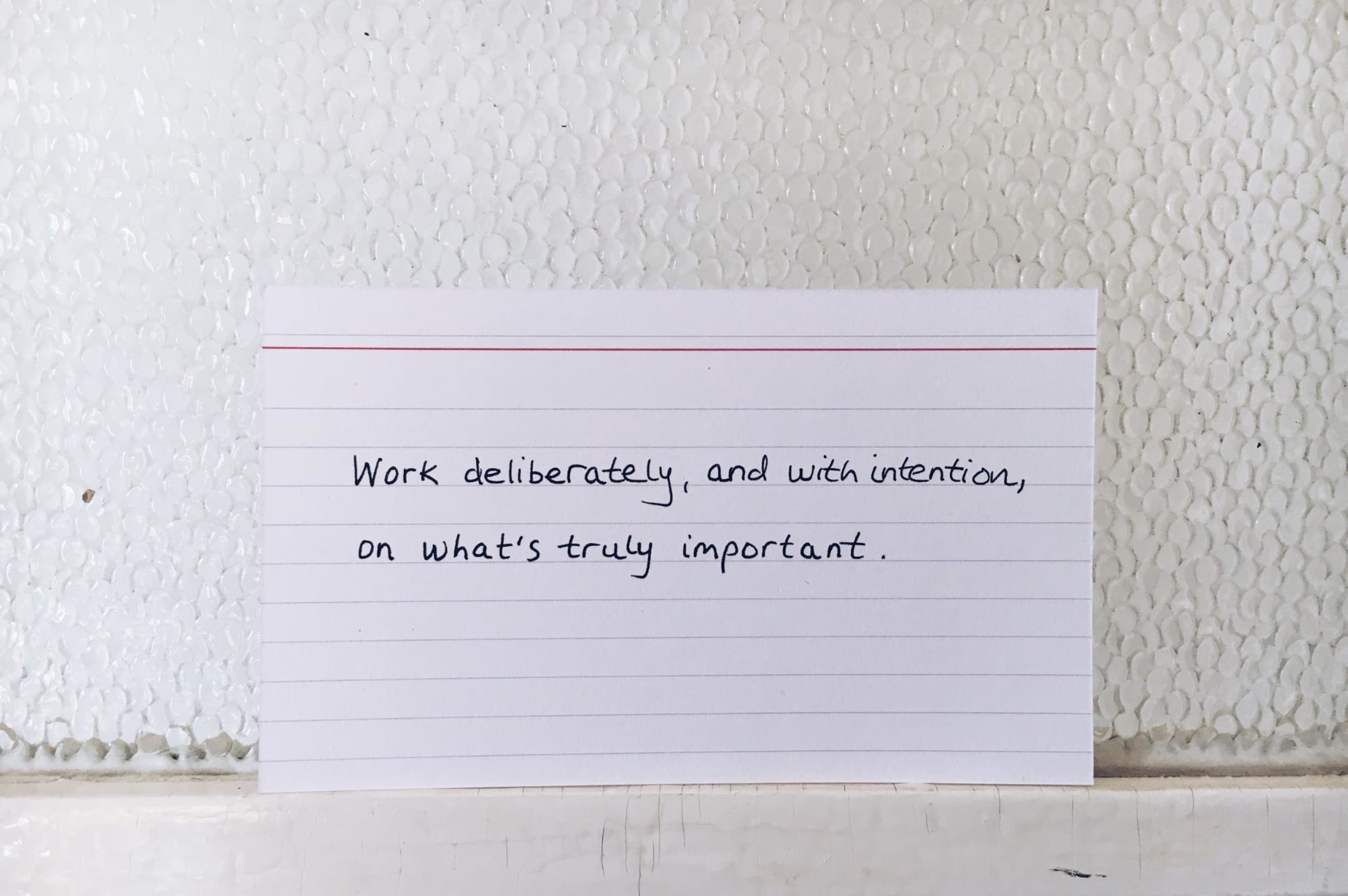
- Productivity requires focus - Keep this information in mind: “We encounter more distraction today than we have in the entire history of humanity”. With a relentless stream of things we could be doing, practicing deliberate focus on what we should be doing is more important than ever. Without mindfulness of where we need to direct our attention, we move aimlessly through our to-do lists without truly accomplishing a whole lot. Free yourself from distraction. Endless device notifications, a stream of meetings, and compulsively checking your email are all common distractions that flatten our productivity.
- Productivity is choosing important work - Chris suggests there are four types of tasks: unnecessary work, distracting work, necessary work, and purposeful work. With a finite number of things we can focus on, he urges us to choose “purposeful work” that’s both productive and attractive. Purposeful work involves activities, that are simultaneously engaging and impactful, leads to a complete immersion in work that feels incredibly rewarding.
How do you actually put it into practice?
- Practice greater diligence in eliminating distractions. While you work, use site blockers to disable distracting website, turn your phone to airplane mode, and declutter your desk.
- Practice single tasking instead of multitasking by working on one task until completion before beginning another.
- Catch yourself the next time you’re about to reflexively say “yes” to something. Instead, practice saying “no” and aim your attention towards a predefined priority.
Jill E Duffy's Cue Card
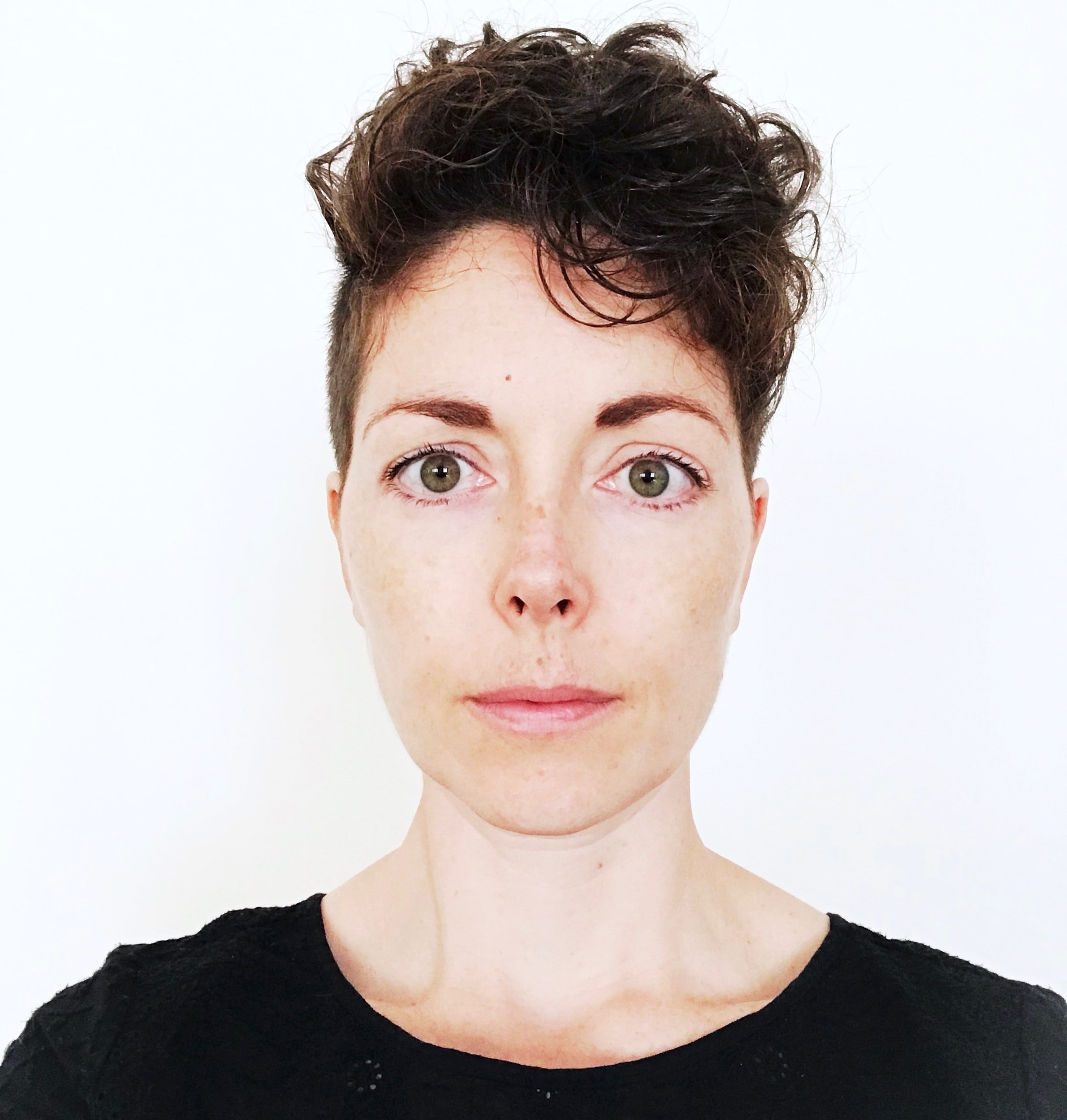
Productivity Street Cred
- Author of Get Organized: How to Clean Up Your Messy Digital Life
- Creator and author of the Productivity Report website where she summarizes research on productivity and shares actionable approaches to productivity
- Contributing Editor at PCMag, where she writes reviews of technology products as well as columns about how to be more organized with technology.
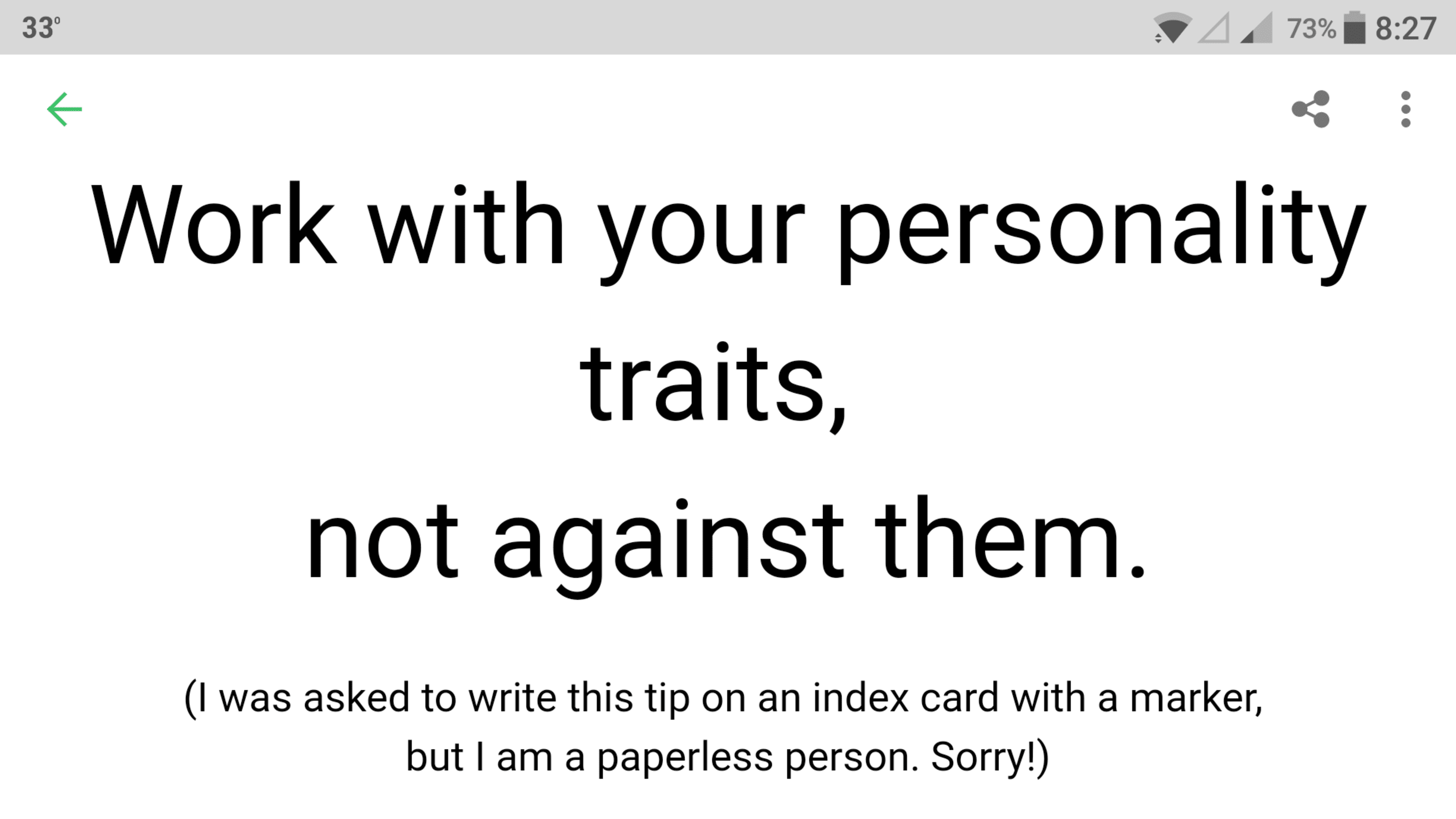
- Personal productivity requires personal knowledge - Rather than adapting your natural tendencies to the latest productivity craze, learn what methods truly work for you. As a rule of thumb, choose the path of least personal resistance. Don’t feel guilty waking up at 7am instead of 5 am or jogging instead of hopping on the latest fitness kick. In the event your natural tendencies are opposed to activities you must do, leverage what we enjoy doing through practices like temptation bundling that combine an enjoyable activity with a less pleasant one.
- Modify your work to suit you - There’s often no “right” way of getting things done. Give yourself the freedom of adapting what you’re given and making it work for you. Asked to give a powerpoint presentation but hate public speaking and making slides? Counter-pitch a fireside chat or a Q&A instead. This applies to productivity methods too. Don’t like 25 minute pomodoro sessions? Change them to 45. Seeking favourable alternatives to getting things done can lead to magical results.
How do you actually put it into action?
- Go inward instead of outward. Think of the last time you successfully completed an important project or accomplished something worthwhile. How did you do it? Zero in on the practices that allowed you to go from start to finish in the past rather than picking up new productivity tactics.
- The next time you find yourself thinking “this won’t work”, come up with a list of 5 alternatives that could work.
The magic of the cue card method is that it cuts through the noise and leaves room only for what’s truly essential. If there's one thing I took away from the productivity experts, it's this:
Recognize the hacks for what they really are: quick and impermanent fixes to complex and long-standing problems. Given the chance, choose the fundamentals.
